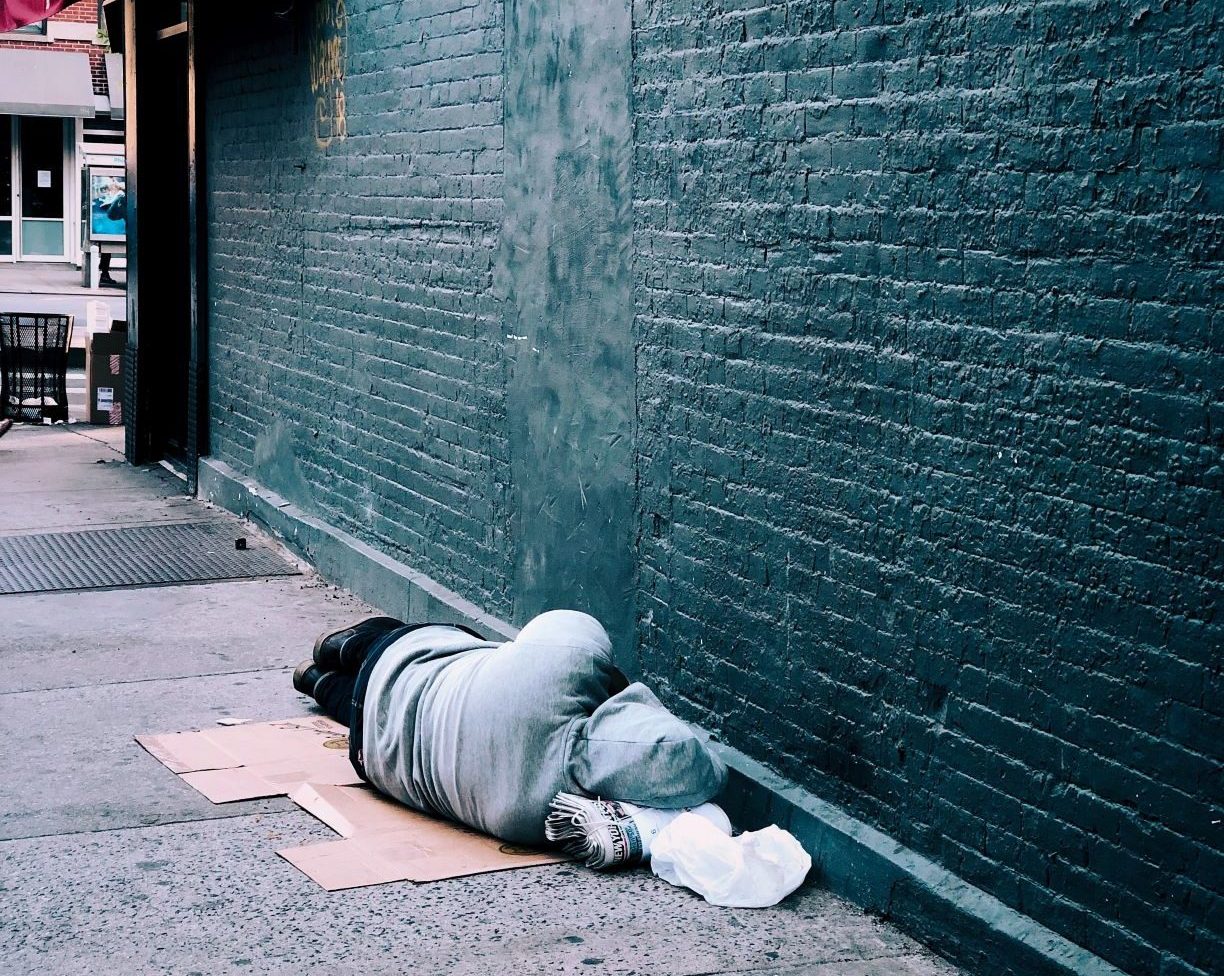
Covid-19 has heighted the need to address the UK wide homelessness crisis. Between March and September 2020, over 50% of services across Great Britain reported an increase in need and demand for their services.
In December 2020, Shelter published their annual report, ‘Homeless and Forgotten’. The report estimates the number of people homeless and living in temporary accommodation in England at this time was 253,000 – the highest figure for 14 years.
Shelter wrote of the report, “Rising homelessness is already a major problem—with the latest figures showing 115,000 more people are homeless and trapped in temporary accommodation than a decade ago…”— Shelter highlight the economic chaos caused by Covid-19 could have a catalytic effect on the crisis. The charity’s analysis of government data shows the number of people in temporary accommodation jumped by 6,000 in the first three months after the start of the pandemic. “… the number of people experiencing homelessness is undoubtedly higher, as many people will be undocumented by councils because they are sleeping rough or sofa-surfing.”
Of course, the homelessness crisis in the UK was prevalent long before Covid-19, but the most dominant circumstances that lead to homelessness have been amplified by the pandemic.
Nobody chooses to become homeless. Homelessness is usually situational and can happen to anyone. It can be caused by several social aspects including poverty, lack of affordable housing, and unemployment. Life events such a relationship breakdown and losing a job or, mental or physical health problems and substance misuse, can all push people into homelessness.
Add a global pandemic with possible long term mental health and economic implications for the UK population and it is easy to see how there is an increased need for preventative services and greater mental health support for the UK population and those living with an enduring mental health diagnosis.
Read more: The impact of COVID-19 for people living with a long-term mental health diagnosis
“Four in five homeless people suffer from a mental health problem, and the lack of support is condemning them to a life on the streets.” – The Big Issue
A study carried out by Homeless Link, found that 45% of homeless people had been diagnosed with a mental health issue, with 80% reporting some form of mental health problem. Poor mental health and homelessness go hand in hand.
A home is vital for good mental and physical health. Having affordable and safe accommodation brings an abundance of factors to a person’s life; it provides stability, safety and security, helps with social inclusion and family life, and it also provides access to health services like GPs.
Watch this short video from Mind that looks at the barriers Sarah, Nadia and Gabbi faced trying to get social housing. While Rob adds his perspective as a housing support adviser:
Become an advocate: Educating yourself, your family, friends and the community can help break the stigma surrounding both mental health and homelessness. Homelessness can happen to anyone. Treat people who are experiencing homelessness with respect and dignity, as you would any other person.
Donate: You can donate to local charities, food banks and local shelters. Donations don’t have to be money, it can be food, items of clothing, sleeping bags etc. Homeless charities and organisations can advise on what they need most at any time.
Volunteer: You can support local homeless charities by becoming a regular volunteer who can use their skills to help the homeless. For example, fundraising, teaching, computer skills, cooking, driving, advice sessions and more. You can donate your time at local food banks, soup kitchens and shelters.
Click here for a list of the organisations that need help with donations or volunteers.
Individuals who are experiencing homelessness, or believe they may shortly become homeless, can apply as homeless to their local authority.
Local Authorities
Searchable directory of local authorities (also known as local councils).
www.gov.uk/find-your-local-council
Citizens Advice
Free, confidential information and advice on your rights, including money, housing, legal and other problems.
0800 144 8848 (England advice line) | 0800 702 2020 (Wales advice line)
Shelter England
Provides free, confidential advice on housing and homelessness in England.
0808 800 4444
Crisis
Provides a wide range of services for homeless people.
Homeless Link
Membership charity for organisations working with homeless people. Includes a directory of services for homeless people in England.
(Photo by Jon Tyson on Unsplash)